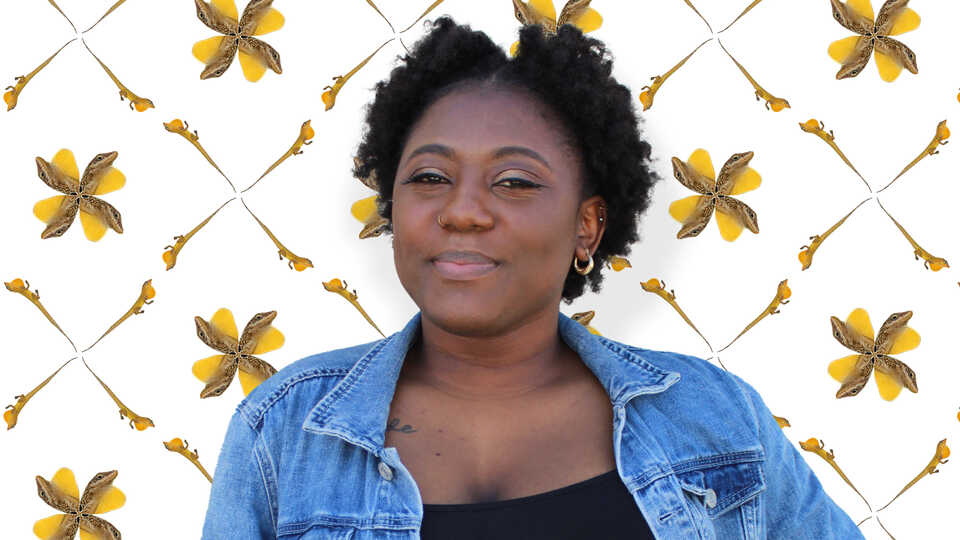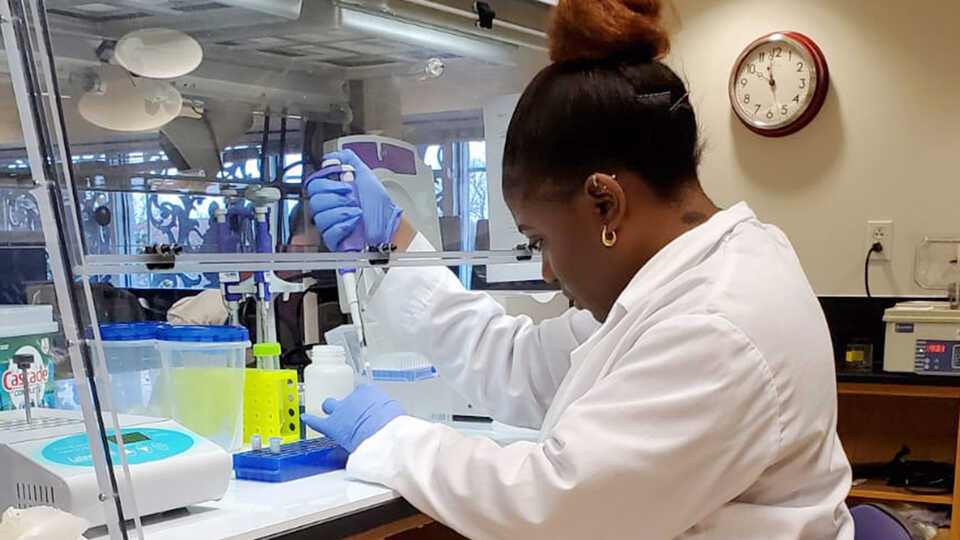Chelsea's Story (she/her)
I grew up on a small island in the middle of the Caribbean, watching the Discovery Channel with my dad. Watching the snakes and lizards, looking up all the birds and insects I could, I had always known that I wanted to work with animals in some capacity. I left the unique biodiversity of my island for the U.S. to try to figure out what that was, but that meant learning more about myself, as well. I had been scared of that for a long time.
I had a complicated journey with my identity, but how could I be successful as a scientist and as an advocate if I couldn’t answer questions about and speak up for myself? As a Black, queer woman in STEMM, I had never seen reflections of myself in the shows that inspired me to become who I am. The processes and questions that exist only serve people who fit a certain mold. To change that, there need to be voices like mine pointing out the disparities and asking questions—both about the science and the methods we use to advance it, and about where people like me fit in—or rather, are forced to.
On my island we speak Lesser Antillean Creole, have folklore about many of our animals, and have herbal and traditional uses for plants passed down from our African and Kalinago ancestors that we still use and share. This is all shared by word of mouth and most of it hasn't been written down, and if it has, it's not easy to find in print. Bridging the gap between the local communities and scientists would open up and preserve so much more knowledge, like the contributions I've noted during my data collection for my research in Dominica.
I found my way to the field of lizards, specifically that of anoles. It’s a field where there are no voices like mine (and it was a literal field; I was doing research back home on my island). Did I fit in? Could I? I was the only Black, queer scientist and the only one actually from Dominica.
While it was difficult, it brought me home, both physically and to my identity. I could not only exist as myself and do the science I loved—I could improve it. My long-term goals are to help preserve my country's culture and history with wildlife; continue to advocate for other scientists from marginalized communities with unique points of view and knowledge; and nurture relationships between communities and formally trained scientists. My journey started long ago, but it continues with the determination to not have to hide myself, and for others to not feel they have to either.
Explore New Science anywhere through our virtual Google Arts & Culture exhibit, or see our new, in-person exhibit on your next Academy visit.
To learn more about the partners that helped make New Science possible, visit:

